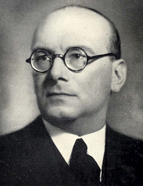

The institutions of commercial and maritime law created and developed by the Portuguese monarchs, particularly King Dinis and King Fernando, were also adopted by other merchants. If "the historical formation of all nationalities is the result of their geography" (A Flandres…, 2004, p. 32), Portugal could be no exception. At the mouths of the great rivers, the largest urban agglomerations were born. As for the production of the respective hinterland, instead of leaning towards the interior of the Peninsula, it naturally leaned towards the maritime ports. The sea was therefore the Portuguese natural and historical destination. Once here, it was not so much the waters of the Mediterranean that these products traversed, but those of the Atlantic. Towards the north, namely Flanders. It was a regular trade. Products from the land, such as grapes, wine, olive oil, figs, honey and wax, or sea salt, or objects from small domestic industries. First local business. Then national. As this country soon became a political unit, it also soon became an economic unit. A country whose kings sealed the interests of the merchants of their cities, or their own interests, with successive marriages between their descendants and prominent figures from northern Europe. The change of seas or routes that took place in the 14th century was due to various reasons. Because the Hundred Years' War had ruined the great fairs of the old continent, which until then had been distribution centres for oriental products transported by the Italians. Because the Ottomans were no longer satisfied with the territory to which they had initially been confined, but expanded into the Mediterranean. This change took place practically at the same time as the preparations for the conquest of Ceuta. An endeavour carried out by a "king imposed by a bourgeoisie that was the economic expression of the nation" (Idem, 2004, p. 53). We were at the dawn of a new era: "The moment when Portugal prepared its fleet for the conquest of Ceuta closed the age that had begun with the definitive destruction of the Roman organisation, and opened to the world the Modern Age of capitalism and economic nationalisms" (Idem, 2004, p. 51). Northern European cities will become the new redistribution centres for inland markets. After the respective vessels docked in the national harbours, "Driven initially by the small Portuguese nation, first for its own production, then for that of its new territories, as well as for the transport of valuable goods from the East, the world left the horizons inherited from the Roman Empire and made the Atlantic the Mare Nostrum of modern times" (Idem, 2004, p. 63). Henri Pirenne, the "glory of historical science" in the '30s, as Veiga Simões regarded him, was the historian he cited most enthusiastically.
This work is financed by national funds through FCT - Foundation for Science and Technology, I.P, in the scope of the projects UIDB/04311/2020 and UIDP/04311/2020.
